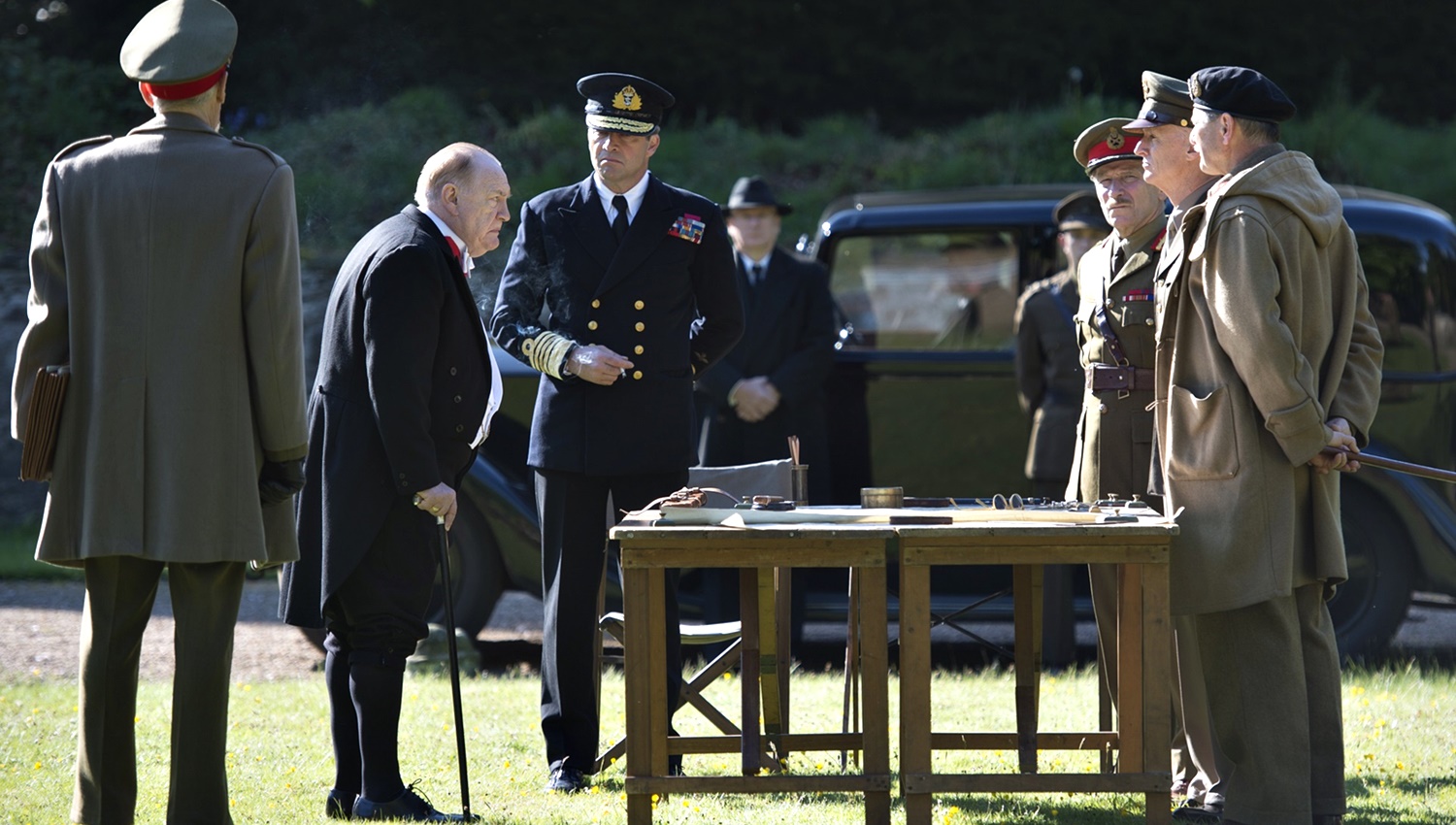
Churchill
Dustin Chase
We are almost half way through 2017, and Churchill (one of two films portraying the iconic Brit) delivers the first potential leading actor awards contender. With a career spanning over four decades of supporting character roles, Brian Cox (Rise of the Planet of the Apes), the ever-villain, gets his big, bombastic leading performance and it’s powerful. As Winston Churchill, Cox does far more than just project the persona of the Prime Minister, he delivers a riveting performance of a man struggling with old age, who just happens to be in the middle of World War II. By his side is Miranda Richardson as Clementine Churchill, doing her own impressive work as the strong-willed wife, unafraid to stand up to her intimidating husband.
It’s June 1944, in order to turn the tide of the war, Winston Churchill (Cox) and Europe’s allies must liberate France. Prime Minister Churchill had led the charge against Hitler, speaking over the radio to inspire courage and hope. When the Americans get involved in the war, Dwight Eisenhower (Slattery) and other leaders realize that Winston might be losing his grip on reality. “Try acting like a hero and maybe people will start believing you are one again,” his wife Clementine (Richardson) scolds him. Struggling with having power taken away, even from his own King, demanding he stay back in London, not to embarrass himself on the front line. Winston feels the need to remain involved, even when the war effort chooses a different path than his recommendation.
The cinematography leaves the audience with so many visual memories, it’s hard to shake the film from memory.
The original score by Lorne Balfe (13 Hours) was the first indication Churchill had something beyond a biopic or a behind the desk war film. The score guides the audience into the first frame, with a weary Churchill gazing on blood stained oceans. Equal praise goes to cinematographer David Higgs (Rock N’Rolla) who seduces the audiences with his photography work in tight spaces as well as larger settings that have characters interacting in iconic locations. Higgs imagery leaves the audience with so many visual memories, it’s hard to shake the film from memory. Both Balfe and Higgs do their best work to date, alongside director Jonathan Teplitzky (Railway Man).
Churchill never feels like a biopic, it evaluates such a small portion of the Winston’s vast existence. It’s a character study for sure, with Winston in nearly every frame of the picture. The script takes time to explore Winston’s guilt over lives lost under his command, and trying to prevent further causalities under his charge. Cox understands the internal struggle of the character and many of his scenes showcase the stage and screen actor giving the performance of his career. It would be hard to forget such a relentless showcase at the end of the year, because it’s such a display of talent. If Gary Oldman’s performance as Churchill in Darkest Hour (Nov. 22) equals what we see here, it could be the first time in history, two leading actors are nominated for playing the same character.
Final Thought
Brian Cox gives an award worthy performance as Winston Churchill, a career high for the actor and undeniably one of the year’s best.
